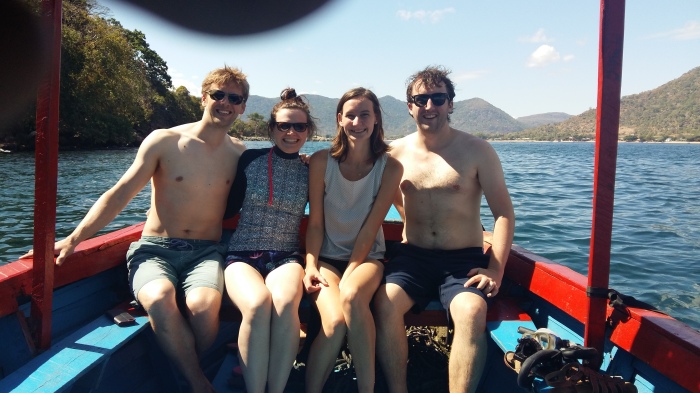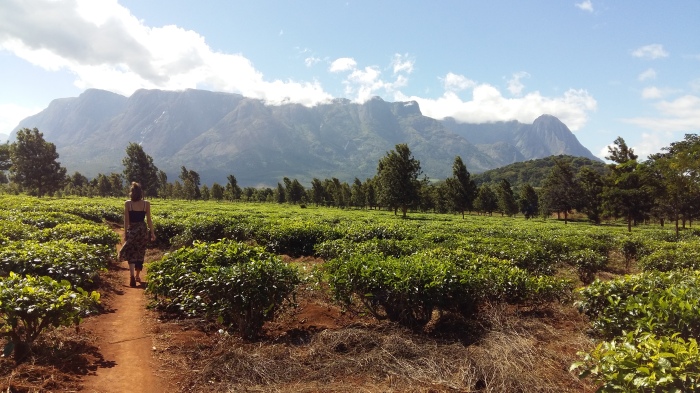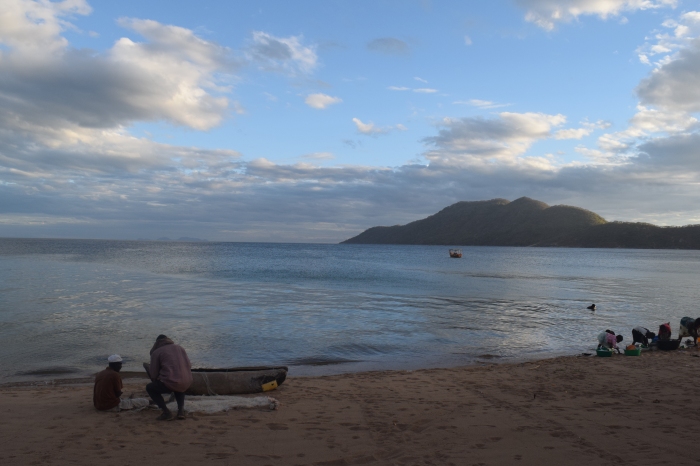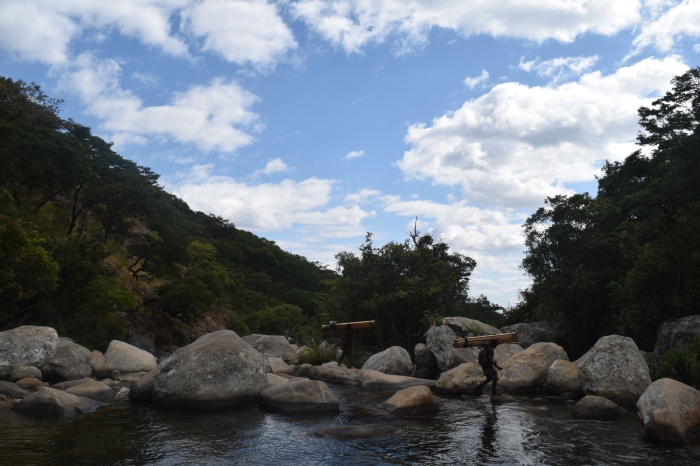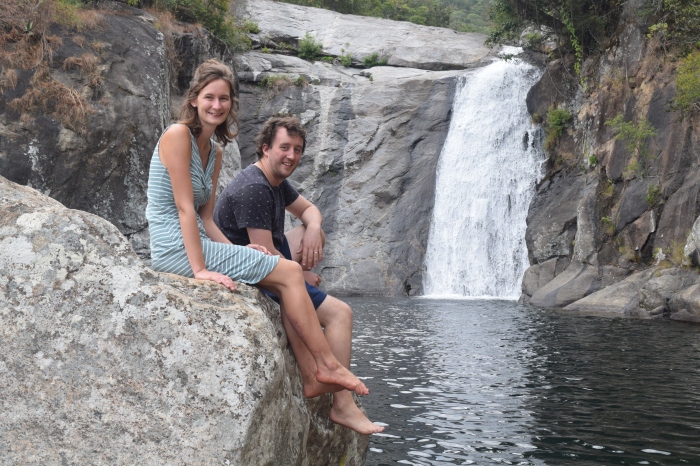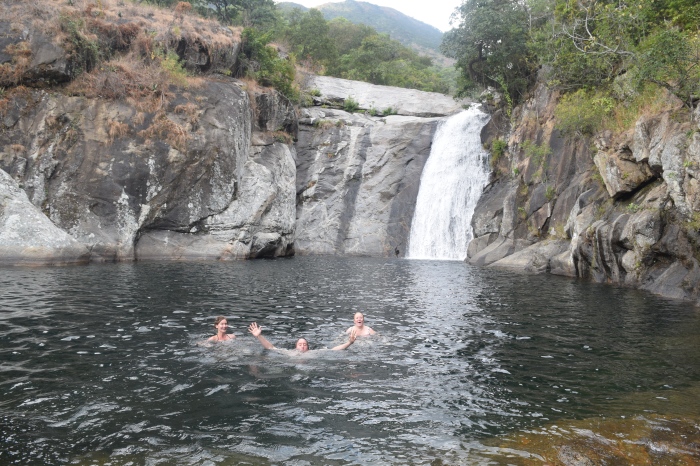I write at our chitenge covered table, at the end of a hospital day filled with laughter and the first goodbye. It’s been a long time since either of us have written, sorry! That’s been down to all kinds of trips and visiting, seeing friends, exploring more and obviously, working hard. But now, as I sit with a mugful of velvety coffee, hopefully I can give you an idea of some more of what we’ve been up to.
More and more in hospital it’s hard to remember what working in the NHS must be like. What will it be like in a hospital where we don’t live two minutes away so we can go home for lunch together? In a hospital where every female (and Zambian) staff member isn’t referred to as ‘Sister’? A hospital without the Tuesday morning updates on which drugs and which lab tests have ‘in stock’? At the minute, these lists don’t last too long – with only five blood tests available (kidney function and liver function amongst other things are out of stock) and an increasingly sporadic supply of medication. Having different antibiotics available each week, weeks with no insulin and a varying supply of blood pressure medications presents a massive challenge in trying to manage people’s conditions, which rely almost as much on consistency of treatment as the treatment itself. Whilst we grumble about the NHS, seeing first hand how difficulties in procuring medicines quickly translates to patient care, makes me realise how lucky we have it in the UK. Here, the difficulties stem from the necessity to buy all medicines and equipment through Medical Stores Limited (MSL), a company who have a poor track record at managing to obtain the right medicines themselves, which begs the question as to why the Zambian government doesn’t change supplier, perhaps it’s related to the amount of control USAID has over MSL? But that’s not a question for here, just that we’re lucky to have a stable and constant supply of these medicines back home that are essential for people’s health.
The last few days have been a calm after a month of great fun, travelling and time with all manner of friends. The hospital (or the Medicine and Paediatric wards at least) currently has a relatively small number of inpatients and lots of doctors, meaning that we have plenty of time to chat to patients and families as we do our rounds, have some banter about our language skills (Ali and I discovered just yesterday that ‘brain’ in Chichewa is ‘bongo bongo’, no word of a lie), and have our mid-morning break complete with boiled eggs and Apple Max. The challenge of diagnosing and therefore treating people seems to be becoming more difficult as one by one our lab tests have run out, followed by the X-ray machine breaking this week. Perhaps it’s just that we’re becoming increasingly aware of all the conditions and problems that people here may have – not just TB and HIV with all their potential complications, but the same conditions that we have grown used to at home, yet present in different ways here and at much later stages. Even today there’s been an elderly man admitted with 3 months of having an increasingly huge abdomen. In the UK I suspect at the first hint of something being wrong, a man of his age would have gone to his GP, had a scan and been referred a long time ago to the surgeon or cancer specialist. Here, he presented with an abdomen that is massive and tight with fluid inside it. I suspect from his story that he has a liver cancer (there are lots of risks for liver cancer here – not only lots of alcohol problems, but lots of viral hepatitis and worms that can cause long term liver damage too). He has so much fluid in his abdomen that the ultrasound scan we’ve done hasn’t helped us much, there isn’t any X-ray to tell us whether it’s spread to other parts of his body and the blood tests for the liver have all run out this week. We’re going to try to take some fluid off, from his abdomen and the rest of the body, and give him some painkillers, but it’s tough to be presented time after time with a situation where someone is so far down the path of a disease that very little can be done to cure it, whilst not being completely sure that that even is his problem. It’s very interesting to be in this situation, but also gives new perspective on how lucky we are to have a health service which is free at the point of access (One of the reasons this man has presented so late is that he lives so far from his local clinic that he had to raise money to get there. It took him a month to raise enough money) and that looks to pick up and treat conditions early by screening, quick referral pathways and early specialist care. So, it’s strange to think of life back in the UK, but I’ll go back with a new perspective on some of the NHS’ massive achievements and contributions to advances in health in the UK. Don’t ruin it Mr. Hunt. And stay away from No. 10 too.
Still, though it seems like longer, we’ve only been back in the hospital three weeks since our latest trip took us to wonderful Malawi to visit friends, the famous lake and Mount Mulanje, a huge massif in the south of the country. Rach had been to Malawi on her last trip to St. Francis’ four years ago and ever since we knew we were coming again it was straight onto the calendar. Brilliantly, two great old friends from Edinburgh, Angus and Hannah, had moved to Malawi three weeks beforehand and so we met them at Lake Malawi for our first few days. The journey in itself was an adventure, and having negotiated the border, a policeman looking for drink money and the switch from Zambian to Malawian kwacha (an exchange rate of about 1 Zambian to 66 Malawian, great fun trying to work those conversions out!) we got our 5 hour minibus involving chickens and children on our knee and a rickety bus swinging round hairpin bends going down a mountainside (don’t worry Mum, very safe, no risks…), before arriving at Cape Maclear for sunset on the backs of motorbikes. We spent a brilliant couple of days with Hangus, wandering the beaches, snorkelling amongst tropical fish, probably getting schistosomiasis and eating lots of excellent food on the edge of the beautiful lake, where each morning loads of Malawians came to wash their pots and plates with the most beautiful of backdrops.
After Hannah and Angus headed off back to work 3 hours away, Rach and I had a couple of days lounging around, reading, kayaking in a double kayak in a true test of marital harmony, and sampling more of Cape Maclear’s food, before heading south, with the help of a few more minibuses, towards Mt. Mulanje, and another great friend from Edinburgh and Liverpool, Isobel, who somewhat unsurprisingly, has become ingrained and is flourishing in a mission hospital at the foot of the wonderful mountain-scape, amongst the tea plantations. We loved having the chance to see a hospital similar to the one we’ve been working in and share guitar playing duties (we have about 6 chords between the three of us) during Iz’s breaks. Rach and I spent a morning wandering through tea plantations, perfectly green against the strikingly grey mountainous backdrop, whilst Iz saved some lives, before we headed to a mountainside hotel for dinner. As we sat down to get a drink and watch the sunset, suddenly some familiar accents, unmistakeable even five and a half thousand miles from home, rang through the air, as “Chantelle, it’s a badger!”, “Sharice, baa…baa…” shrieked out. A group of schoolkids from Glasgow on a school trip playing Heads Up on their phone would sound the same wherever they were. Still we pushed on through and forced ourselves to eat some more delicious Malawian food next to them.
The next day we headed a little way up the mountain, to Likhubula Falls, a beautiful pool and waterfall halfway up the west side of the mountain, led ably by our Malawian guide Robert, who proudly sang us Flower of Scotland to keep spirits high as we climbed. Arriving at the beautiful waterfall and pool (allegedly bottomless), our guide stripped off to his boxers, climbed a rock face like a mountain goat and launched himself in, issuing a challenge which unfortunately I couldn’t refuse and which, literally, took my breath away, thanks to the sheer cold of the water. After nothing more than a few minutes in the water we wrapped up and had our picnic looking down a natural wonder to the tea plantations below. Our time with Isobel and Hannah and Angus was a special time of sharing our experiences and lots of fun with old friends as we all live out some dreams here and learn an awful lot from it – medically and far beyond that.
There are far more stories I could tell, but I’m sure I’ll write to you once more before we head back to the UK, in just over three weeks now! With that will come all kinds of new challenges and adventures as we come back to new jobs, a new home and to see lots of you again, but for now we’ve got a few more weeks of fun to have here yet!
